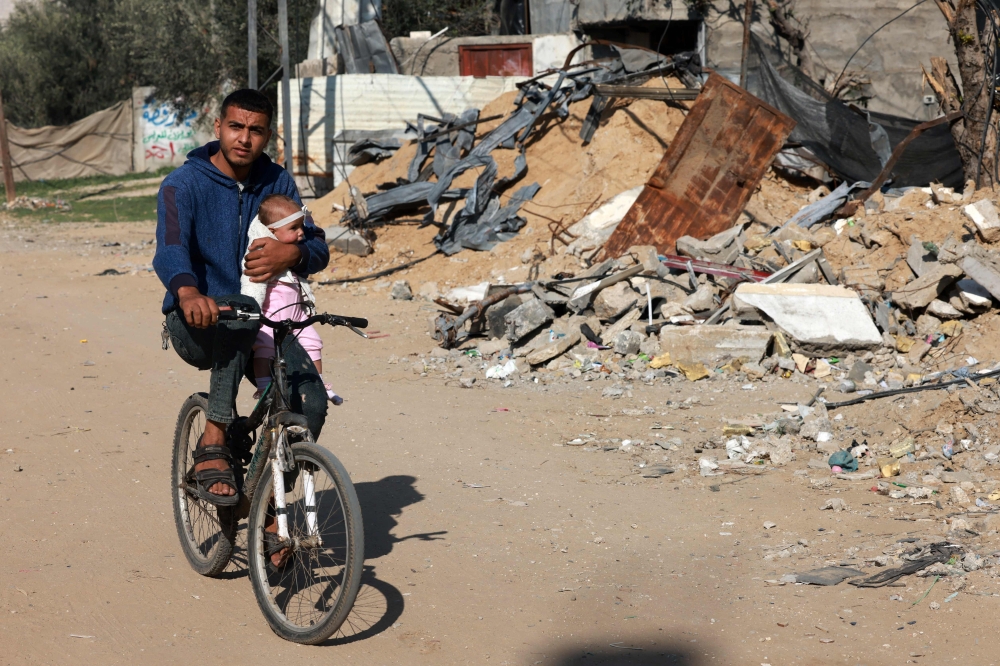

As the year ends, civilians are dying at a staggering pace in the Gaza Strip and the genocide in Darfur may be resuming. A man charged with 91 felonies is leading in American presidential polls, and our carbon emissions risk cooking our planet.
But something else is also true: In some ways, 2023 may still have been the best year in the history of humanity.
How can that possibly be?
Just about the worst calamity that can befall a human is to lose a child, and historically, almost half of children worldwide died before they reached the age of 15. That share has declined steadily since the 19th century, and the United Nations Population Division projects that in 2023 a record low was reached in global child mortality, with just 3.6 per cent of newborns dying by the age of 5.
That’s the lowest such figure in human history. It still means that about 4.9 million children died this year — but that’s 1 million fewer than died as recently as 2016.
Or consider extreme poverty. It too has reached a record low, affecting a bit more than 8 per cent of humans worldwide, according to United Nations projections.
All these figures are rough, but it seems that about 100,000 people are now emerging from extreme poverty each day — so they are better able to access clean water, to feed and educate their children, to buy medicines.
None of this eases the pain of those who have lost their children in 2023, nor is it a balm for those caught in war or climate catastrophes. Yet, at year’s end, it’s worth acknowledging this backdrop of progress — not to distract anyone from all that is going wrong, but to offer a reminder that when we try hard enough, we can accomplish amazing things. Right now, looking at the anguish worldwide, I’d say we’re not trying hard enough.
I write a version of this column each year at around this time, and it upsets many readers. They believe it is offensive to hail progress when so many are dying unnecessarily from wars and disease, when the future seems so bleak to so many.
I understand their point; my career has been dedicated to covering genocide, war and poverty. But one thing I learned long ago as a journalist is that when our coverage is unremittingly negative, people tune out and give up. If we want to tackle problems — from the Gaza war to climate change — then it helps to know that progress is possible.

Other health news is also encouraging, a reflection of the way public health tools are behind many of the advances in well-being. Two horrifying diseases are close to eradication: polio and Guinea worm disease. Only 12 cases of wild poliovirus have been reported worldwide in 2023, and 2024 may be the last year in which wild polio is transmitted.
Meanwhile, only 11 cases of Guinea worm disease were reported in humans in the first nine months of 2023.
Likewise, the United States government recently approved new CRISPR gene-editing techniques to treat sickle cell disease — and the hope is that similar approaches can transform the treatment of cancer and other ailments. Another landmark: New vaccines have been approved for respiratory syncytial virus, or RSV, and malaria, and both are expected to save children’s lives.
Blinding trachoma is also on its way out in several countries. A woman suffering from trachoma in Mali once told me that the worst part of the disease wasn’t the blindness but, rather, the excruciating pain, which she said was as bad as childbirth but lasted for years. So, I’m thrilled that Mali and 16 other countries have eliminated trachoma.
Those who see 2023 as a notably grim year are also right, of course. My reporting in the Middle East late this year was personally depressing, and climate change threatens the gains in poor nations such as Bangladesh and Madagascar.
Yet, despair is paralyzing, not empowering. It seems contradictory in a world brimming with pain, but the most important trend in the world in my lifetime may be the revolution in child mortality, the enormous decline in global poverty and the vast increase in literacy that many people seem unaware of.
I highlight this backdrop of progress so that it may fortify us in 2024 to tackle all the other suffering that persists. - The New York Times
Oman Observer is now on the WhatsApp channel. Click here


